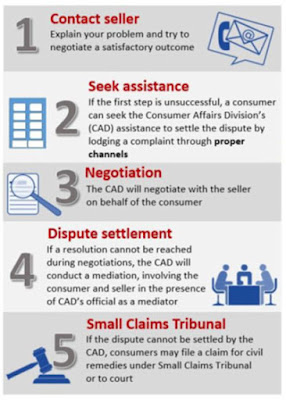Consumer Protection in Brunei Darussalam
Consumer protection in Brunei Darussalam
on: November 17, 2016
CONSUMER protection is an essential element of a healthy business ecosystem. It provides safeguards to consumers from unfair trade practices such as deception and misrepresentation, making false claims including publishing of false advertisement and any related matters.
This encourages honest business dealings and instills overall confidence in the market to support business growth.
In Brunei Darussalam, the Consumer Protection (Fair Trading) Order, 2011 (CPFTO) was enforced on January 1st, 2012 to provide the legal framework for consumers affected by unfair trade practices to have remedy through mediation.
What does the Consumer Protection (Fair Trading) Order, 2011 (CPFTO) cover?
The CPFTO protects consumer against any unfair practices by sellers. Unfair practices cover conducts such as: Deceiving or misleading consumers, such as hidden fees and surcharges, manipulation of measurement units, using small print to conceal terms and conditions in giving discount.
Making false claims regarding products or services such as claiming a second hand good as a new/unused.
Taking advantage of consumers who have no knowledge about the products or services such as a car workshop mechanic misrepresents to a consumer to replace parts which are not faulty.
It has to be highlighted that the CPFTO protects consumers from any unfair practices, provided that there is a business to consumer (B2C) transaction.
The definition of a consumer in CPFTO is a person who purchases goods/services for personal consumption and not for commercial purposes.
For example, a restaurateur buying goods for his restaurant would not be classified as a “consumer”.
There are 20 specific unfair practices listed under the CPFTO, which are highlighted in the included infographic.
What should a consumer do when they have a complaint?
A consumer encountering unfair practices is to first approach the seller with supporting documents, such as receipts, to explain the problem and try to negotiate for a satisfactory outcome.
Most issues can be resolved at this stage. However, if the dispute remains unresolved, the consumer may report his complaint to the Department of Economic Planning and Development (JPKE) through the Consumer Affairs Division (CAD).
The CAD will negotiate with the seller on behalf of the consumer.
If a resolution cannot be reached, the CAD will conduct a mediation, involving the consumer and seller in the presence of CAD’s official as a mediator.
If the dispute still remains unsettled, the consumer may file a claim for civil remedies under Small Claims Tribunal or to court.
Courtesy of Department of Economic Planning and Development (JPKE)



Comments